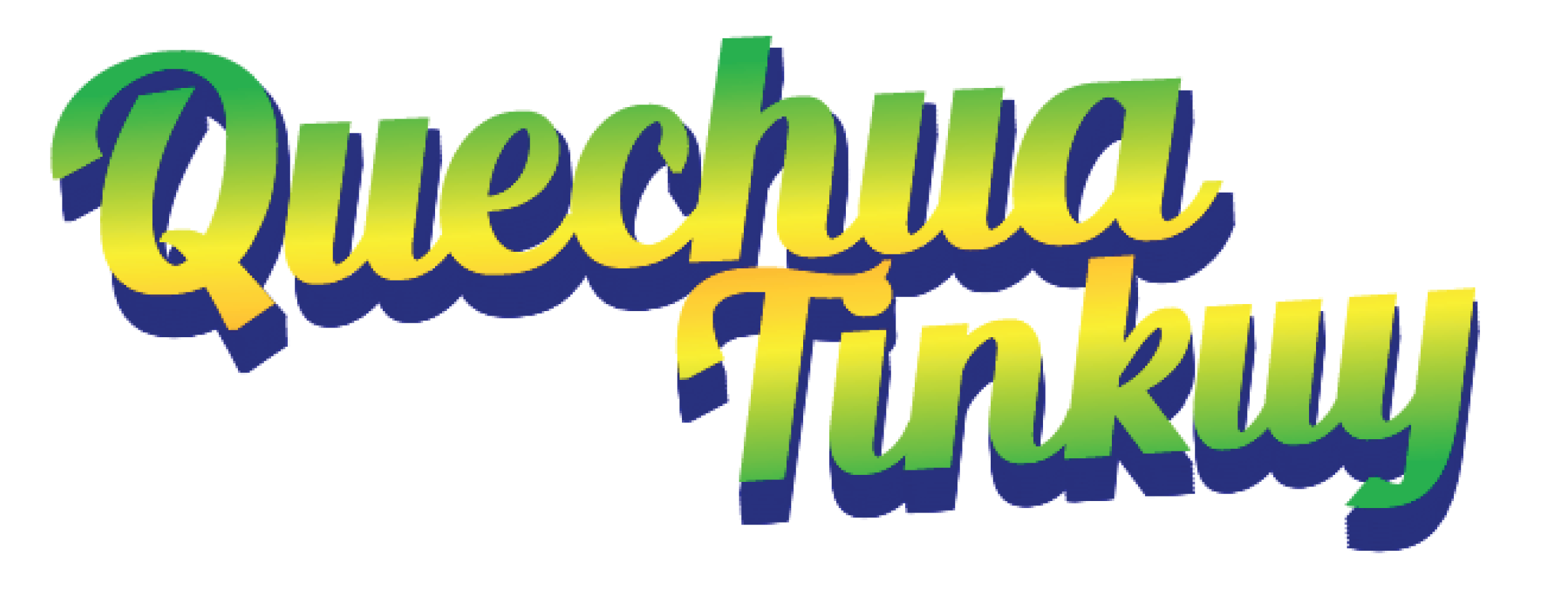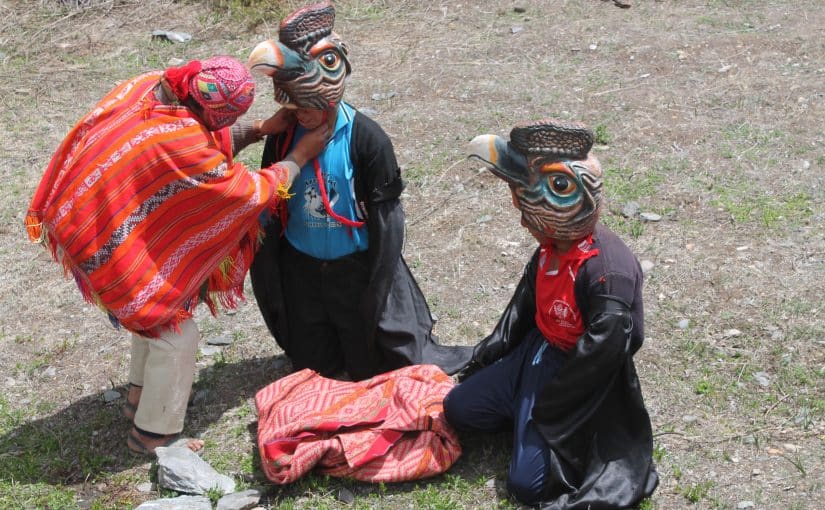
Qallarinapaq | Introduction
In this unit you will learn the personal pronouns in Quechua that will help us address people and/or talk about objects that are singular or plural. In the same way, we invite you to interact with the multimedia material such as graphics and audios. The exercises that are presented in the final part will help you further explore what you learn in this unit.
For example:
| I | I |
| You | You |
| She/he | She/He |
| Ñuqanchis | We (inclusive) |
| Ñuqayku | We (exclusive) |
| Qankuna | You (plural) |
| Paykuna | They |
Now we will conjugate the personal pronoun "I" (ñuqa or noqa) with the verb "llank'ay" (to work):
| Pronoun | Verb llank'ay ("ni" is the marker of the 1st person who does the action) |
|---|---|
| Ñuqa – noqa | llank’ani |
| I | work |
Ready?
¡Qallarisun! (Let's get started!)

Qillqa | Grammar
There are 7 personal pronouns, 3 of which are singular and 4 which are plural, let's look at the following table:
Note: Keep in mind that Ñuqa can also be replaced with Noqa. Both correspond to a dialectal variation and are valid. The same happens with the pronouns ñuqanchis, ñuqayku which can be replaced with noqanchis, noqayku.
Let's take a look at the following table:
Personal Pronouns in Quechua
Singular – Ch’ulla
| I | I |
| You | You |
| She/he | She/He |
Plural – Ashka
| Ñuqanchis | We (inclusive) |
| Ñuqayku | We (exclusive) |
| Qankuna | You (plural) |
| Paykuna | They |
Inclusive (I): You are including yourself in the group, and also including the group that you are addressing.
Exclusive (E): You are including yourself in the group, but you are not including the group you are addressing.
For practice we will listen and practice the pronunciation of the personal pronouns.
Click on the audio and follow the instructions:
Note: In the audio you will hear the following at the beginning: «Kunan uyarisunchis» which means Now we are going to listen.Next the audio describes the personal pronouns and says: «kunantaq qan kutipanayki» which means now you repeat.
| I | I |
| You | You |
| She/he | She/He/It |
| Ñuqanchis | We (inclusive) |
| Ñuqayku | We (exclusive) |
| Qankuna | You (plural) |
| Paykuna | They |
¡Kusa!, very good!
We will continue practicing with personal pronouns, this time we will conjugate the pronouns with the verb to be with only the signal pronouns.
For example:
Singular – Ch’ulla
| Ñuqa ka-ni | I am |
| Qan kan-ki | You are |
| Pay kan | She is / He is / It is |
Plural – Ashka
| Ñuqanchis kanchis | We are (inclusive) |
| Ñuqayku ka-yku | We are (exclusive) |
| Qankuna kan-kichis | You are |
| They are | They are |
Click on the audio and listen to the pronunciation of each personal pronoun.
Note: you will have noticed that each pronoun has a different verbal ending, for example:
- kani
- kanki
- kan
- ka-nchis
- ka-yku
- kan-kichis
- kan-ku
Always keep in mind that these endings are used with a specific pronoun, these endings will be presented with more detail in the following units. For now in this unit we will focus only on the personal pronouns.
Next, we will conjugate only the singular pronouns:
Ñuqa kani / I am
| I Francisco Avalos kani. | I am Francisco Avalos. |
| Ñuqa Curahuasimanta kani. | I am from Curahuasi. |
| Ñuqa campesino kani. | I am a peasant. |
Qan kanki / You are
| Qan Eduardo Guisado kanki. | You are Eduardo Guisado. |
| Qan Andahuaylasmanta kanki. | You are from Andahuaylas. |
| Qan yachachiq kanki. | You are a teacher. |
Pay (kan) / She/he/it is
| Pay Francisca Alarcon. | She is Francisca Alarcon. |
| Pay Nueva Yorkmanta. | She is from New York. |
| Pay abogada. | She is a lawyer. |

Rimanakuna | Vocabulary
This unit includes the following vocabulary:
| Yachay | To know / to learn |
| Wayk’uy | to cook |
| Rimay | to speak |
| Llank’ay | to work |
| Uyariy | to listen |
| Kutipay | to respond |
| Tusuy | to dance |
| Tiyay | to live / reside |

Ruwapakuy | Exercises
Click on the audio and listen to the following sentences:
Ñuqa Quechuata yachachi-ni
Qan mikhunata wayk’u-nki
Pay chakrapi llank’a-n
Ñuqanchis wasipi rima-nchis
Ñuqayku carnavalta tusu-yku
Qankuna Nueva Yorkpi tiya-nkichis
Based on these sentences, write seven examples with each of the personal pronouns in your notebook, including the vocabulary from this unit.
You can use the following examples as a guide:
Ñuqa yachachi-ni
Qan yachachi-nki
Pay yachachi-n
Ñuqanchis yachachi-nchis
Ñuqayku yachachi-yku
Qankuna yachachi-nkichis
Paykuna yachachi-nku
Ñuqa llank’a-ni
Qan llank’a-nki
Pay llank’a-n
Ñuqanchis llank’a-nchis
Ñuqayku llank’a-yku
Qankuna llank’a-nkichis
Paykuna llank’a-nku
Paykuna linguisticata yacha-nku

